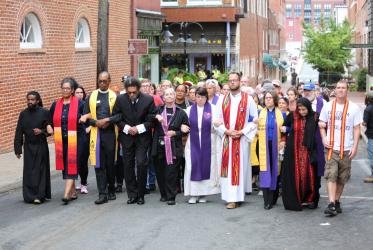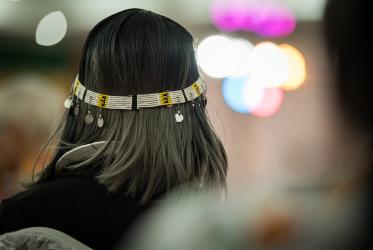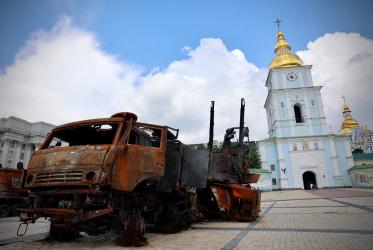Panellists explored questions such as: How do we recognise these tragedies, and celebrate the survival, resistance, resilience, and heroes of these communities? How do we honour their martyrdom? What is done to prevent us from falling into amnesia or denial?
The event was part of a series of regional webinars organised by the World Council of Churches (WCC) Commission of the Churches on International Affairs in collaboration with the WCC Spiritual Life. It is part of many virtual events organised this year to mark the 75th anniversary of the Commission of the Churches on International Affairs.
Rev. James Bhagwan, general secretary of the Pacific Conference of Churches, offered a regional perspective of the Pacific with a background of colonialism. “Our story, however, begins thousands of thousands of thousands of years ago,” he said. “The same attitudes given to many of our sisters and brothers from Asia and from Africa about Pacific Islanders perhaps not even being fully human were used in the conquest of the Pacific Islands,” he said. "There are these oppressive, traumatic disasters that have been forced on Pacific island people.”
Taaitulagi Tuioti, from the Methodist Church in Samoa, spoke about Black Saturday, on 28 December 1929. During a Mau parade along Apia’s waterfront, New Zealand police opened fire and killed at least eight people.
Tuioti said that Samoa received a formal apology from New Zealand in 2002, bringing closure to an unfortunate chapter in Samoa’s history. “We remember our independence,” said Tuioti, “We roam freely due to the efforts of our forefathers.”
Rev. Billy Wetewea, from the Protestant Church of Kanaky New Caledonia, remembered a hostage taking in a cave that occurred in 1988. This had led to four days of torture for the people of my tribe, from the old ones to the young ones,” he said.
Danity Laukon, from the University of the South Pacific Marshall Islands, spoke about the land of her roots, and how nuclear testing by the United States displaced and oppressed people. “The Marshall Islands is first and foremost a home and our place of belonging,” she said. “We have our world views that are formed by our ocean, land and sky.”
Between 1946 and 1958 the United States was testing nuclear weapons and forced residents away from their homes. “They were left in other islands with little to no food or water,” said Laukon.
The webinar finished on a positive note by exploring the work some churches have done in healing past wounds.









